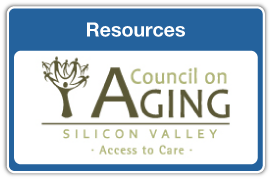Managing the Affairs of Your Aging Parents
by Nancy Norris, CLPF, NCG
You’re a highly driven woman running your own business, trying to keep your company profitable and your staff employed, and you have two teenagers whose schedules could put yours to shame. Today you get a call that your 85-year-old mother, who has become increasingly forgetful, was rushed to the hospital after falling and fracturing her hip.
Your parents never drew up an estate plan and you are not authorized to handle your mom’s care. In fact because of HIPAA privacy laws, the physician treating your mom has the right to call in Adult Protective Services. If you think it’s implausible that your mother could be turned over to the Public Guardian where her assigned deputy is responsible for 60 to 70 clients, think again.
The best way to avoid this nightmarish scenario is to have a conversation with your aging parents long before they are incapable of managing their own affairs. In view of 30 to 50 percent of people ages 85 and older being affected by dementia, an estate plan and trust with designated appointees to handle health care and financial matters is essential. If parents become incapacitated and can no longer take care of themselves, you don’t want them to end up conserved by the Public Guardian.
Your parents may have a trust designating you as their successor trustee but they have forgotten to give you a copy and now don’t remember where the trust is, or else it’s out of date and needs revising. The estate plan needs to reflect that you are also the designated health care proxy and financial power of attorney so you can step in if they become incapacitated. As the designated agent you also need copies of all documents.
Sometimes parents have an estate plan but worry that their adult child wants to take control of their affairs and they refuse to discuss the matter.
Whether your parents have a trust or not, try sharing about your own estate planning efforts. Find out if they have all the proper documents in place and tell them you would be assisting them only if they need your help at some point. Reassure them that they are not relinquishing control just because they are doing their planning. Moreover, no one can step in unless at least two physicians confirm either parent’s diminished mental capacity.
Enough can’t be said about adult children communicating with their parents about the future of their care.
BIO
Nancy Norris, founder and principal of Norris Fiduciary Services (norrisfinancial.net), is the consummate elder care advisor. Norris is a certified fiduciary, private trustee and conservator, elder care estate planning specialist and financial planner, helping families from Sacramento to Monterey. Norris has handled the most complex situations and can provide some “nuts and bolts” advice to women baby boomers caught in the sandwich generation on caring for their elderly parents — without jeopardizing their own well-being or the health of their businesses.





